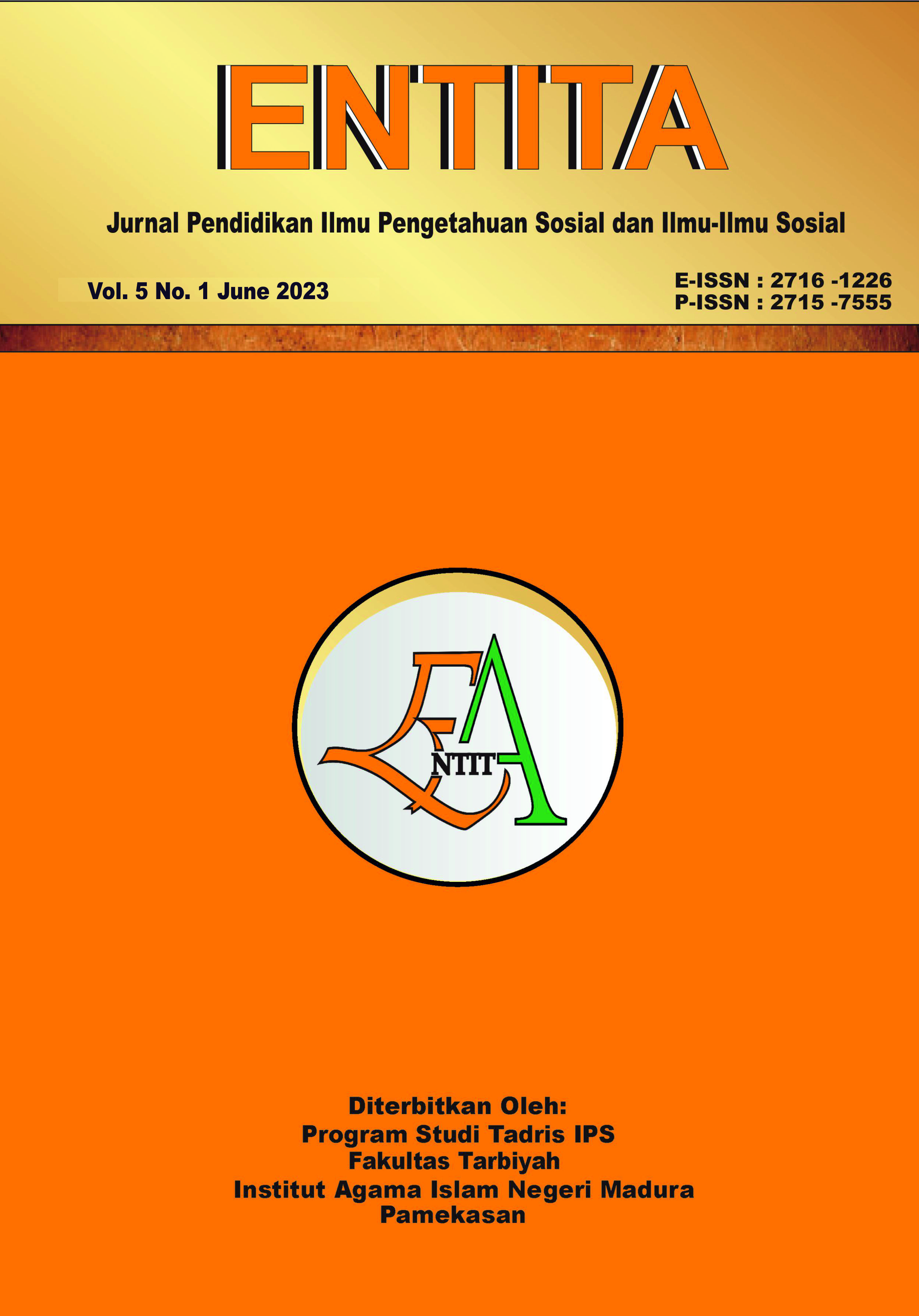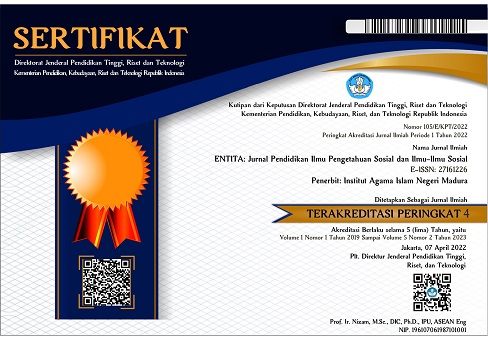Peran Modal Sosial pada Pengrajin Perahu Pulau Sewangi Kabupaten Barito Kuala
 Abstract views: 288
,
Abstract views: 288
,
 pdf downloads: 497
pdf downloads: 497
Abstract
The river community reflected by the Banjar tribe becomes an inherent image due to its natural conditions which are very close to the river. Boat is the suitable transportation tool to support daily activities. However, recently people have started to switch from land transportation on boat sales. The research focuses on the social capital of boat producers in maintaining their existence, especially in the city of Banjarmasin. This study used a social capital approach and descriptive qualitative research methods. The data collection techniques during the study used in-depth interviews and open-ended questions with key informants, field observations and documentation. This study used data analysis in the form of data reduction and triangulation. The results of this study found that boat craftsmen can still produce in the midst of land transportation competition due to social capital through three aspects; First, there is trust that is currently still maintained, between owners and workers as owners and owners; Second, the existence of values/ norms that are still existed among craftsmen such as the form of mutual cooperation that still exists with the local term "mengulur"; Third, the social network still strong between craftsmen and outside parties such as raw materials suppliers and consumers. This study recommends that the regional government of Barito Kuala pay more attention and facilitate the various needs of boat craftsmen.
Downloads
References
Agusyanto, Ruddy. 2007. Jaringan Sosial dalam Organisasi. Jakarta: Raja Grafindo Persada.
Alfani, Daud. 1997. Islam dan Masyarakat Banjar Deskripsi dan Analisa Kebudayaan Banjar. Jakarta: PT RajaGrafindo Persada.
An’amta, Dimas Asto Aji. 2022. Buku Ajar Perubahan Sosial: Edisi Pertama. Sleman: Komojoyo Press.
Coleman, James S. 1988. “Social Capital in the Creation of Human Capital.” American Journal of Sociology 94:S95–120.
Hakim, Arif Rahman, Dimas Asto Aji An’amta, M. Huda Inayaturrahman, Muhammad William Syabani, dan Siti Nabila. 2022. “JUKUNG SEWANGI: REPRESENTASI IDENTITAS LOKAL PERAHU TRADISONAL DARI KALIMANTAN SELATAN.” Jurnal Pendidikan Kewarganegaraan 12 (2)(November):1–9.
Hapip, Abdul Djebar. 2008. Kamus Banjar-Indonesia. 6 ed. Banjarmasin: CV. Rahmat Hafiz.
Liebner, Horst H. 2005. "Perahu-Perahu Tradisional Nusantara Suatu Tinjauan Sejarah Perakapalan dan Pelayaran” dalam Eksplorasi Sumber Daya Maritim. Jakarta: Departemen Kelautan dan Perikanan RI.
Moelong, Lexy J. 1993. Metode Penelitian Kualitatif. Bandung: PT Remaja Rosdakarya.
Petersen, E. 2000. Jukung-Boats from the Barito Basin, Borneo. Viking ship museum.
Putnam, Robert D., Robert Leonardi, dan Raffaella Y. Nonetti. 1993. Making Democracy Work. Princeton, N.J: Princeton University Press.
Ritzer, George, dan Douglas J. Goodman. 2009. Teori Sosiologi: Dari Teori Sosiologi Klasik Sampai Perkembangan Mutakhir Teori Sosial Postmodern (Terjemahan). Yogyakarta: Kreasi Wacana.
Saleh, Idwar. 1983. Sekilas Mengenai Daerah Banjar dan kebudayaan Sungainya Sampai Dengan Akhir Abad19. Banjarmasin: Departemen Pendidikan dan Kebudayaan.
Subiyakto, Bambang. 2005. “Arti Penting Perairan Bagi Transportasi Masyarakat Banjar.” Jurnal Kebudayaan Kandil 3 (9):56–67.
Copyright (c) 2023 ENTITA: Jurnal Pendidikan Ilmu Pengetahuan Sosial dan Ilmu-Ilmu Sosial

This work is licensed under a Creative Commons Attribution-NonCommercial 4.0 International License.
ENTITA: Jurnal Pendidikan Ilmu Pengetahuan Sosial dan Ilmu-Ilmu Sosial operates an Open Access policy under a Creative Commons Non-Commercial 4.0 International license. Authors who publish with this journal agree to the following terms:
- The copyright of the received article once accepted for publication shall be assigned to the journal as the publisher with licensed under a

- Journal is able to enter into separate, additional contractual arrangements for the non-exclusive distribution of the journal's published version of the work (e.g., post it to an institutional repository or publish it in a book), with an acknowledgement of its initial publication in this journal.
- Journal is permitted and encouraged to post their work online (e.g., in institutional repositories or on their website) prior to and during the submission process, as it can lead to productive exchanges, as well as earlier and greater citation of published work (see The Effect of Open Access).
- Here is Copyright Transfer Form that author can download and send to OJS during submission.

















